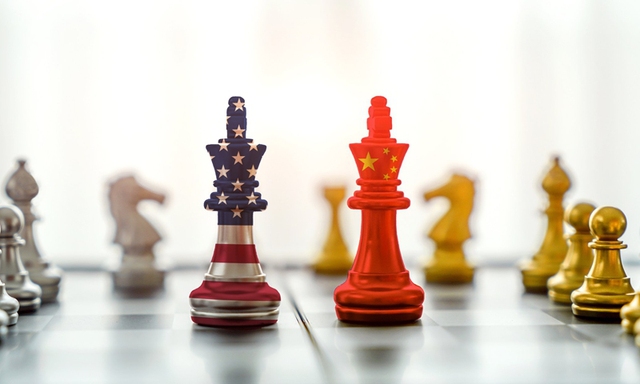(Source:Global News, 2022-7-18)

China US Photo:IC
Since the beginning of this year, the Joe Biden administration has successively pushed the Indo-Pacific Economic Framework for Prosperity (IPEF), which excludes China, and the Partnership for Global Infrastructure and Investment, a project to rival the China-initiated Belt and Road Initiative. In doing so, the US has been attempting hard to carry out its design of strengthening strategic competition against China in practice.
Since the Barack Obama administration, the US has put forward a series of strategies, initiatives and actions against China, ranging from the Asia-Pacific rebalance strategy, Indo-Pacific Strategy, Blue Dot Network to the trade war. Yet the great efforts the US has made in this regard have frequently turned out to be ineffective, with some ending up in a mess and others going up in smoke. Despite this, the US is still eager to promote new designs on its China policy, which constitutes a unique circle of constantly trying and failing in its strategies toward China. How can we understand such a phenomenon?
First, US policy toward China is increasingly driven by domestic politics. The US' China policy is often based on domestic political needs, rather than on a careful assessment of the policy's feasibility. For example, Trump insisted on launching a trade war against China. His aim was to win over white blue-collar voters and the votes of Rust Belt States. As for the extent to which the trade war can help achieve US interests and how much the US will pay for it, the Trump team never carefully considered it.
Facts have shown that the damage of the trade war to the interests of the US is far greater than that to China. The trade war has increased the living cost of American consumers and has also pushed up inflation. Biden understands this, but he also wants to please the white blue-collar class and labor unions. Therefore he has decided to continue the mistake.
Second, policymakers often overestimate the US' own capabilities. For example, Biden announced the Partnership for Global Infrastructure and Investment plan at the G7 summit, claiming to invest $600 billion into infrastructure for developing countries. In fact, the US has its own infrastructure problems at home, with quite a few infrastructures in disrepair for a long time. How could the US possibly invest that much to help other countries' infrastructure?
Third, the US is unwilling to face reality and frequently underestimates China. Since the end of the Cold War, the US has long been in a dominant and active position in its relations with China by virtue of its comprehensive strength. But over the past decade, with the steady improvement of China's comprehensive national strength and the development of major-power diplomacy, China has become more active in its relations with the US. However, policymakers in Washington have not fully realized this. They often underestimate and misjudge the situation as they are unwilling to accept the fact that China is rising.
The Biden administration crafted its China strategy, which can be characterized into three Cs, namely competition, confrontation and cooperation, in the fantasy of creating a bilateral relationship that is in line with the interests of the US, but China maintains its strategic composure and does not dance with the rhythm of the US. China adopts list diplomacy and urges the US to address China's legitimate concerns; it actively develops relations with third parties and accumulates diplomatic resources for competition with the US. The Biden administration's China policy design seems to be a bit more sophisticated than that of the Trump era, but it also keeps hitting the wall in practice. Underestimating and misjudging China has caused US policy toward China to stumble and therefore it cannot go far.
Similar to the Trump and Biden administrations, the future US administrations will continue this erroneous path in its China policy, which is determined by US domestic politics, strategic culture, and the gap between its goals and capabilities. As far as China is concerned, it is necessary to pay attention to the design of various US policies toward China, but not to take it too seriously. These designs are ultimately little more than wishful thinking. If China is too serious about them, it will be led by the US and waste its own resources and strategic opportunities.
As a hegemon, the US has to explore how to handle the relationship with a rising power that is very different to it in terms of political systems, values, culture, and race. Making mistakes is normal. China needs to be strategically patient and have a good response capability. In view of the important changes taking place in both China and the US as well as bilateral relations, the key to China's handling of relations with the US is to strengthen itself and stabilize its foundation.
The author is dean of the Institute of International Studies at Fudan University.






